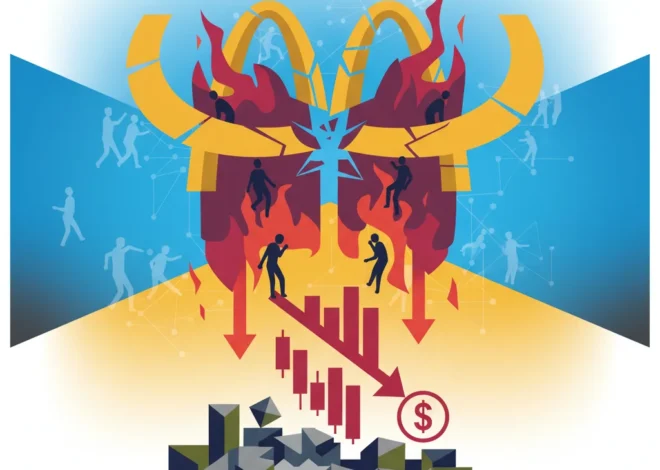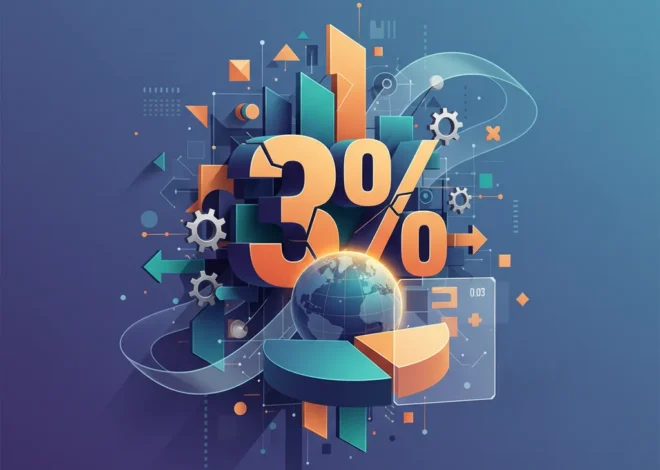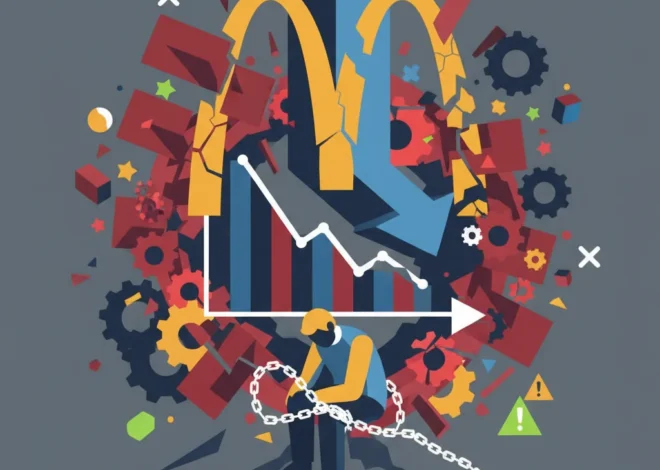
The Summers-Epstein Probe: A High-Stakes Test of Integrity for Harvard and Global Finance
In the hallowed halls of academia and the high-powered corridors of global finance, reputation is the ultimate currency. It is a fragile asset, built over decades but capable of being shattered in an instant. This stark reality is once again in the spotlight as Harvard University launches a new investigation into the connections between one of its most prominent figures, former U.S. Treasury Secretary Larry Summers, and the late disgraced financier Jeffrey Epstein. The probe, focusing on frequent email exchanges, is more than just an internal review; it is a profound case study in institutional governance, the hidden risks of elite networks, and the evolving standards of accountability that impact everything from university endowments to the stability of the global economy.
For investors, finance professionals, and business leaders, the unfolding situation at Harvard is not a distant academic affair. It is a critical lesson in the tangible costs of reputational risk, the importance of ethical leadership, and the undeniable fact that in our hyper-transparent world, associations matter more than ever. This story cuts to the core of trust—the very bedrock upon which the entire edifice of modern finance is built.
A Titan of Economics Under Scrutiny
To understand the gravity of the current probe, one must first appreciate the stature of Lawrence H. Summers. His curriculum vitae reads like a roadmap of modern economic history. He has served as Chief Economist of the World Bank, the 71st United States Secretary of the Treasury under President Bill Clinton, Director of the National Economic Council for President Barack Obama, and President of Harvard University. His voice has shaped policy, moved markets, and guided economic thought for a generation. When Summers speaks on matters of economics or the stock market, the world listens.
This esteemed career, however, has been punctuated by controversy, and his association with Jeffrey Epstein has become an indelible stain. Epstein, a convicted sex offender who died in jail in 2019, masterfully used his immense wealth to cultivate a network of the world’s most powerful people in science, politics, and finance. He donated millions to institutions like Harvard and MIT, gaining access and a veneer of intellectual legitimacy that masked his criminal activities. Summers’ relationship with Epstein, which he has described as professional and related to Epstein’s role as a donor to Harvard, has drawn intense criticism for years. Despite his apologies and explanations, the emergence of new information about the frequency of their communication has forced Harvard’s hand, prompting a fresh inquiry into the full extent of their ties.
Decoding Bitcoin's Sideways Shuffle: Why Price Compression Could Signal a Major Breakout
Reputational Risk: The Intangible Asset with a Tangible Price
For any institution, whether a university or a multinational corporation, a scandal involving a high-profile leader is a direct threat to its most valuable asset: its reputation. This is not a matter of public relations but of fundamental business and financial stability. A tarnished reputation can have cascading negative effects, a concept well understood by anyone involved in investing.
Consider the potential fallout for Harvard:
- Donor Confidence: A significant portion of a university’s funding comes from alumni and philanthropic donations. A scandal that suggests a failure of ethical oversight can cause donors to hesitate, redirecting their funds to institutions they perceive as having stronger governance.
- Talent Acquisition: Top-tier students and faculty are attracted to institutions with unimpeachable integrity. Ethical controversies can deter the best and brightest from associating with the brand.
- Endowment Management: Harvard’s endowment, the largest in the world at over $50 billion, is managed by a team whose credibility is paramount. Any perception of compromised ethics at the leadership level can create concerns among stakeholders.
This situation serves as a powerful reminder for the corporate world. In the age of ESG (Environmental, Social, and Governance) investing, the “G” for governance is no longer a soft metric. Investors are increasingly scrutinizing the character and judgment of corporate leaders. A CEO’s or board member’s questionable personal associations can be flagged as a significant governance risk, potentially impacting stock valuation and access to capital.
To illustrate the multifaceted nature of institutional risk exposed by such events, the following table breaks down the key areas of vulnerability.
| Risk Category | Description | Potential Impact on the Institution |
|---|---|---|
| Reputational Risk | Damage to the institution’s public image, brand, and perception of integrity. | Decreased donor confidence, difficulty in attracting top talent, loss of public trust. |
| Financial Risk | Direct and indirect monetary losses resulting from the scandal. | Withdrawal of donations, potential legal fees, decline in enrollment-based revenue, negative impact on endowment returns. |
| Governance Risk | Failures in oversight, ethical guidelines, and internal controls that allowed the situation to occur. | Calls for leadership changes, increased regulatory scrutiny, implementation of costly new compliance measures. |
| Legal & Compliance Risk | Potential for lawsuits from victims, donors, or other stakeholders, and failure to comply with institutional policies. | Expensive litigation, settlement costs, and mandated operational changes from regulatory bodies. |
The Fine Line Between Networking and Complicity
The world of high finance and elite academia thrives on networks. Connections facilitate deals, spark innovation, and drive policy. However, the Epstein saga exposes the dark side of these networks, where access and influence can be used to shield and legitimize criminal behavior. For leaders like Summers, the challenge is discerning where beneficial networking ends and moral compromise begins. This is a critical lesson for anyone in a position of power, particularly in industries like banking and trading where relationships can be worth billions.
The probe at Harvard forces a broader reckoning with the concept of “elite capture,” where institutions become so beholden to wealthy and powerful figures that they lose their ethical compass. A 2020 report from Harvard itself acknowledged the university’s “reputational and moral failings” in accepting gifts from Epstein and others. This internal admission highlights a systemic vulnerability that extends far beyond one university. How many corporate boards have been swayed by a charismatic but ultimately toxic member? How many investment decisions have been influenced by the allure of a well-connected but unscrupulous partner?
The Driving Test Backlog: A Surprising Lesson in Economic Efficiency and Financial Systems
A New Era of Accountability Fueled by Technology
What makes this situation different from scandals of the past is the unforgiving nature of the digital age. Email records, flight logs, and digital calendars create an immutable trail of evidence. The very tools of modern financial technology and data analysis that have revolutionized the economy can also be turned to forensic investigation, making it nearly impossible for problematic associations to remain hidden forever. Even technologies like blockchain, with its core principle of a transparent and unchangeable ledger, reflect a cultural shift towards demanding verifiable truth and accountability.
This heightened scrutiny means that the standards for leadership are changing. It is no longer enough to be brilliant or effective; leaders must also demonstrate impeccable judgment. A 2021 report on CEO succession by PwC found that forced turnovers for ethical lapses were on the rise, costing companies an average of $11.2 billion in shareholder value. The message is clear: the market is punishing ethical failures more harshly than ever before. The investigation into Larry Summers is a symptom of this larger trend. What might have been overlooked or privately handled a generation ago is now subject to public inquiry and institutional consequences.
Conclusion: The Enduring Value of Integrity
The Harvard probe into Larry Summers and his connections to Jeffrey Epstein is a complex and unsettling story. It forces us to confront uncomfortable questions about power, influence, and the responsibilities that come with them. But for those in the world of finance, investing, and business, the takeaways are profoundly practical.
This is a masterclass in the tangible dangers of reputational risk and the absolute necessity of strong institutional governance. It underscores that in a globally connected and digitally transparent world, personal judgment is an inseparable component of professional credibility. The ultimate health of our financial markets and the broader economy depends not just on sound data and sophisticated algorithms, but on the integrity of the individuals and institutions at the helm. As the details of this investigation continue to emerge, it will serve as a powerful and enduring lesson: trust, once broken, is the most difficult asset to recover.


